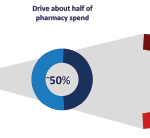It was Christmas Eve, 1996. The pain had become excruciating—it had to be for Kerby to opt to go to the hospital on Christmas Eve because Kerby’s pain tolerance was high. At that point, he had been living with what had ultimately been diagnosed as psoriatic arthritis for about 30 years. That Christmas Eve, the…









